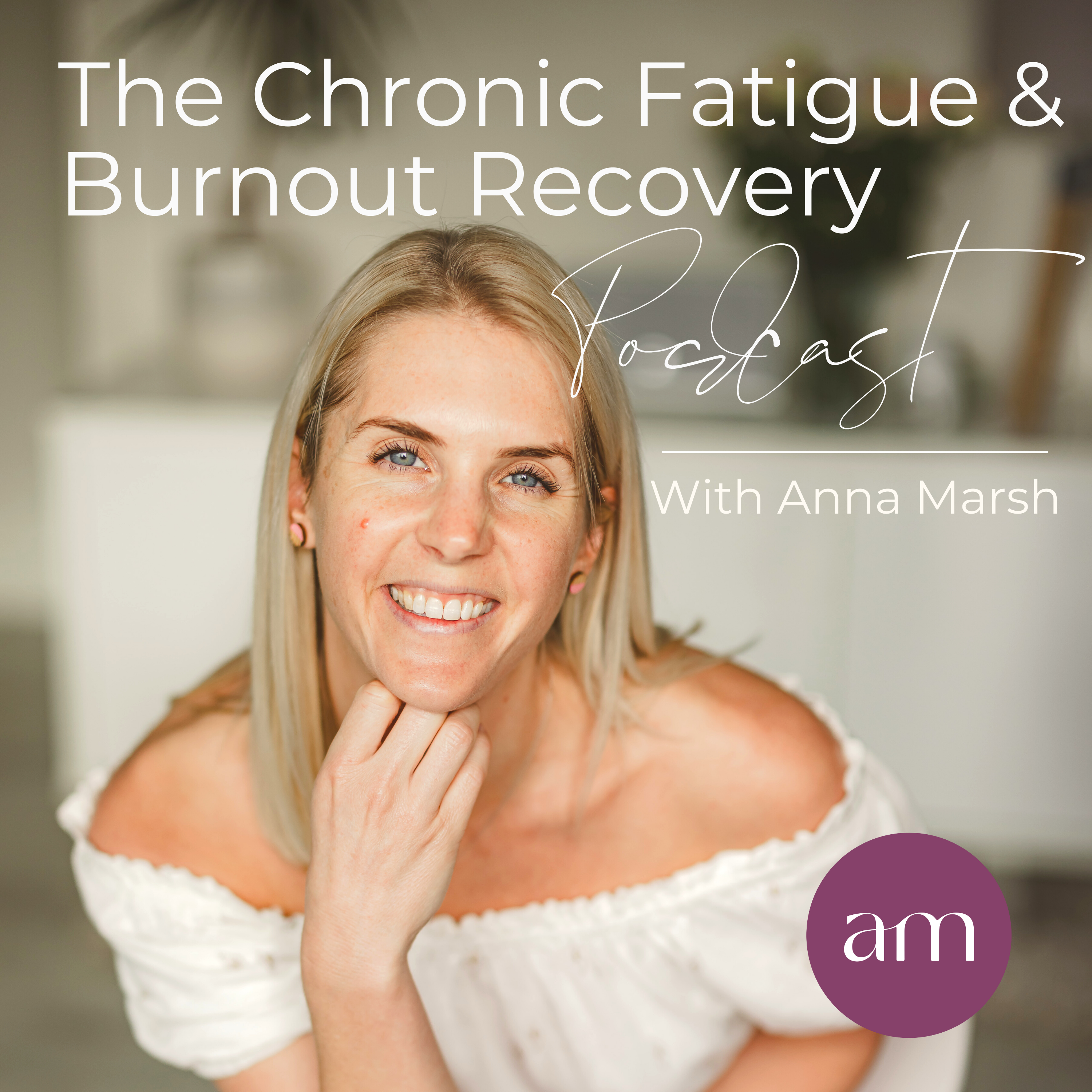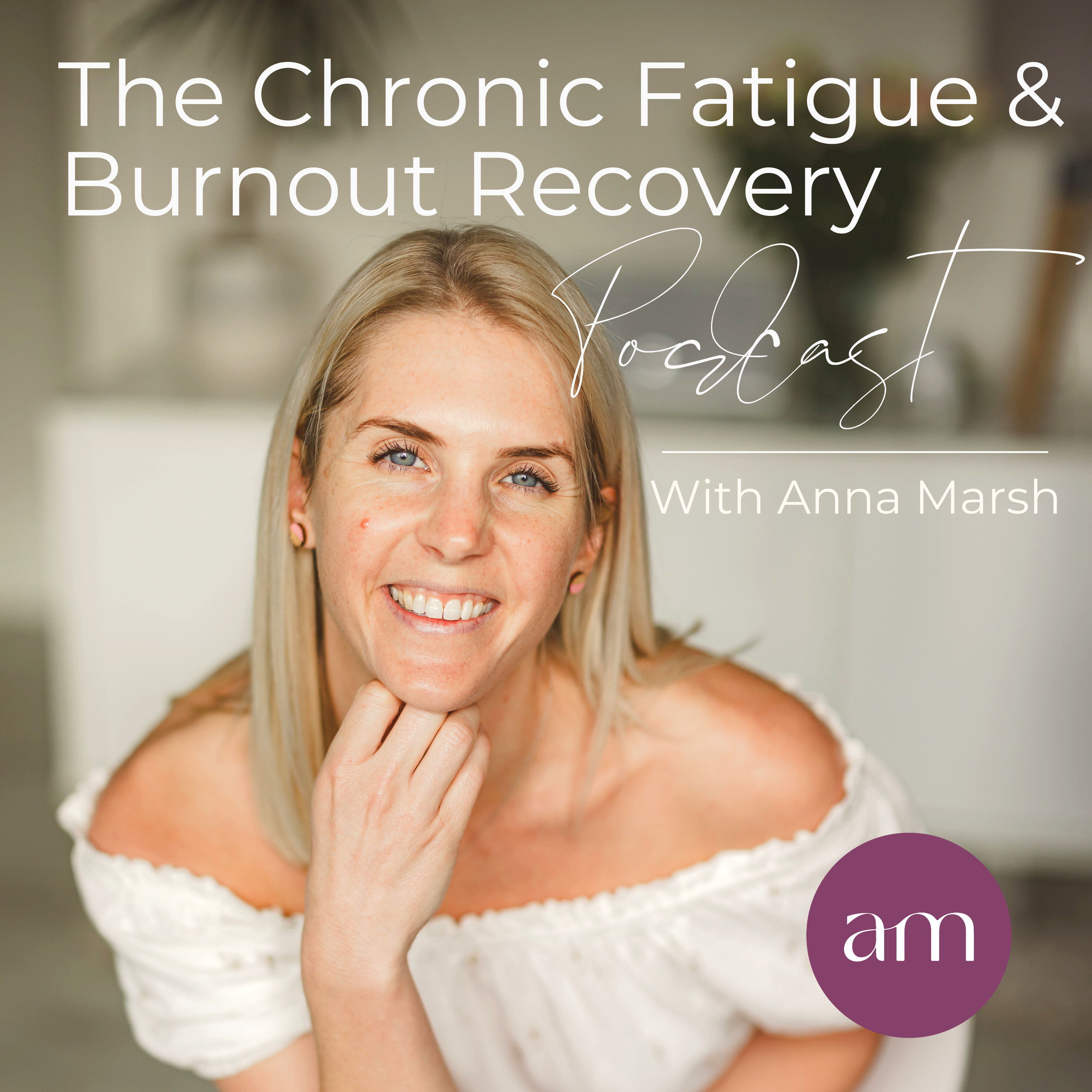Is it possible to recover your energy and vitality when you don’t know why you became unwell? Anna takes the time to address this question and offers a nuanced perspective that may be important for those that don’t know why they became unwell and for those that do!
Website: https://annamarsh.co.uk/
Instagram: https://www.instagram.com/anna_marsh_nutrition/
Fatigue Recovery Quiz: https://app.annamarsh.co.uk/quiz
Today I wanted to create a short episode to answer the question, do you need to know the root cause of your fatigue? So the root cause is often the thing that keeps your body in threat. In previous episodes, I discussed the cell danger response, universal response to threat, which affects the body differently.
Essentially, this response keeps the body stuck in a particular state where rest, recovery, and repair are impossible until the body feels safe.
With that framework in mind, I often talk about how we need to know why we became unwell to address those challenges, threats, or whatever may be going on in the body and move forward. Unfortunately, addressing the root cause may confuse some people because some may not know why they’re unwell. And then, obviously, that can create a sense of panic, perhaps anxiety.

I don’t know why I’m unwell. I don’t know why I’m unwell. No one can help me. I don’t have access to the tests that I need, which that internal dialogue I appreciate is not very helpful for healing and well-being and supporting a well-regulated nervous system state. Dealing with a chronic and complex condition can be challenging for so many reasons.
We don’t always get the support that we need through the medical professionals we’re working with, and we don’t necessarily get the support that we need from our friends and family because, through no fault of their own, they don’t understand what it’s like. So I want to empower people to move forward in their health journey, feeling as supported and informed as possible, and with empowering internal dialogues because that’s really important for regulating our nervous system and our mental well-being. I don’t want to create a spin of anxiety, and almost like an obsession around, I need to know why I’m unwell and why I’m unwell because I don’t think that’s helpful.
But there is what I’ve noticed with the clients that I work with, and there is a strong desire to want to understand, to want to understand what’s happening in the body and what’s happening to them, and to help them to make sense of their symptoms. I think this desire to understand is a human desire to feel safer or more in control in a situation that feels very much out of control. And I get that.

That’s why I love the framework of the cell danger response, the framework of understanding polyvagal theory, how the nervous system works, and this idea of fight, flight, and freeze because I think those frameworks help people understand their bodies a bit better. This idea of the cell danger responses: if the cells feel under threat because there’s a trauma, an infection, a microbe, or a toxin threatening the cells, they’re going to shut down energy production.
Likewise, if the body is operating from a dysregulated nervous system state, and there’s a lot of freeze in the body, that can also look like fatigue, exhaustion, and shutdown. We already have those bigger frameworks in which we can understand what’s happening to the body. I guess where I emphasize this idea of needing to know your root cause, and I think that you can still make progress in your recovery journey when you don’t know your root cause.
So what I want to communicate today is that you don’t need to know your root cause to move forward. If you’re thinking, “Oh, I can’t move forward, I can’t make progress. I can’t move towards wellness because I don’t know what’s causing this yet.” That’s not true.
You can do a lot to support your body, and I’ll start talking about these things in more detail from the next episode onwards. I really want to empower you to understand that there are always things you can do to support your body to move forward and make progress. Do some people fully recover without ever knowing why they were unwell?

Yes, they totally do. And it’s likely because they just gave their body the nourishment that it needed, and that nourishment was appropriate for whatever was going on in their system. But then there are also some people, and this was my experience, doing a lot of things to support their bodies and not making progress.
If that’s the case, it’s likely that something got missed. That’s when knowing the root cause can be helpful. Because, for example, if someone has mold or mycotoxins, and they don’t know that, because no one’s ever taken a thorough case, history suggested it could be an issue for them, and then suggested testing, then they can just be running into a wall and feeling like they’re getting nowhere until that deeper issue is addressed.
So if someone has a gut infection, a parasite, or something going on, and that’s not necessarily being dealt with or addressed, they may make a certain amount of progress. Still, they’re never going to get to that state of fully thriving and feeling fully energized. Suppose someone has a hormone imbalance, and what they need is hormone replacement therapy, and that’s not offered.
In that case, they can continue to move through life feeling like they’re working, just slugging away and not getting that full experience of aliveness thriving that we all want. Because they didn’t know that that was what they needed, do you need to know your root cause to make progress? No, I believe that you can make progress by supporting your body generally.
But if you’re not making progress, there’s an invitation to dig deeper and see if something got missed and if there’s a root cause that needs to be addressed. Then finally, knowing the root cause in the beginning can help to shortcut the process. Suppose I had known that mold mycotoxins were an issue for me.

In that case, it could have taken a year, maybe even two years, off of my recovery if I had fully understood the ins and outs of the nervous system and polyvagal theory and what it means to support my body. From a nervous system perspective, I could have knocked so much time off my journey and saved so much money on tests that were premature to what I needed to be testing. I spent so much money taking supplements my body needed but would have probably been more effective further down the line when I dealt with the mold and the nervous system.
I hope that helps answer the question today, and I hope that wherever you are in your journey, you can identify things you can do to move the needle forward on your health. If you can’t keep listening to the podcast, there will be loads more inflammation coming up. If you feel like you need help picking this apart and starting to identify what’s going on in your body, what you need to prioritize, where to begin, what tests to run, what supplements to take, the whole minefield of all the different things you need to do to take care of yourself?
That’s my job. So you can always reach out and take a look at my website. Consider working with me one-on-one so that you can feel fully supported in your fatigue recovery journey. So have a wonderful fatigue recovery day.
Remember to leave a review and share this episode if you have enjoyed it and receive value from what I’m sharing. And I will see you in the next episode.

Recently someone asked me if they thought there was a connection between being an empath and Chronic Fatigue. My answer: Absolutely! In this episode...

Shownotes It can be common practice amongst many Functional Medicine Practitioners and Nutritional Therapists to use adrenal testing to inform clinical decisions. This often...

Shownotes Anna shares a framework for understanding neuroinflammation from her training in Psychoneuroimmunology with Leo Priumbroom. This is based on the understanding that you...